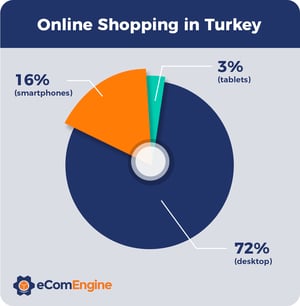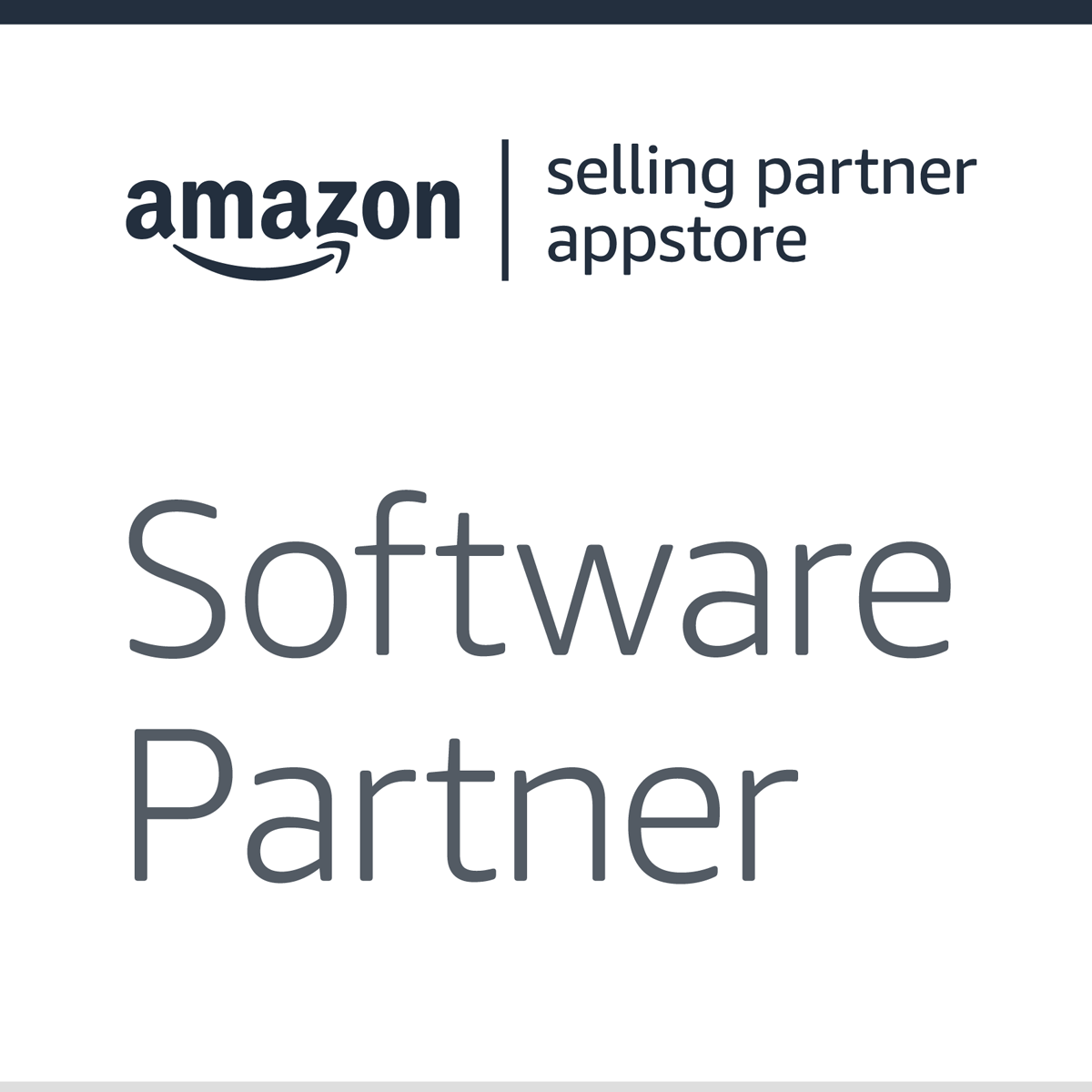Originally published on August 12, 2020, updated March 5, 2025
Menu
Join Our Email List
- Receive our monthly newsletter.
- Stay up to date on Amazon policies.
- Get tips to grow your business.
Should you expand your eCommerce business into Europe or Asia? Why not both! Amazon.tr is now live, giving online retailers access to the Western-most country in the Middle East.
Turkey’s eCommerce market is quite a big fish to catch, worth around $12.76 billion (€10.76 billion) in 2019. More than just a profitable new market, Turkey is a regional leader in eCommerce — in fact, in July 2020 it started a powerful initiative to boost eCommerce in the Middle East-North Africa region, backed by 23 of Turkey’s biggest online retail giants.
But is this fruitful eCommerce market right for you? Will profits make up for expansion costs? What’s the most effective way to market yourself in this distinct culture? In this guide we’ll cover everything you need to know about eCommerce in Turkey so you can decide for yourself.
Ranked as the 13th richest country in the world, Turkey is a hot spot for commerce online and off. Narrowing down the range to eCommerce users, roughly half of the country’s population — 31.39 million people — shop online with an Average Revenue Per User (ARPU) of $253.83.
If you want to break into the Turkish eCommerce market, you’ll need to know what you’re up against. Not surprisingly, eCommerce in Turkey is dominated by Turkish brands, with Amazon only a recent player still struggling to carve its niche. Specifically, the Turkish eCommerce leaders are (in no particular order):
Although you may need some translation help, these eCommerce leaders can tell you a lot about the shopping preferences of Turkish shoppers.
If your online retail business deals heavily in these categories, selling on Amazon Turkey might be a worthwhile investment. If not, you can always consider adding these types of products in anticipation of expanding to the Turkish market.
As the bridge between Western and Eastern worlds, Turkey hosts a quite unique culture. In terms of online shopping behavior, we see that distinct culture manifest itself not just in what they buy, but how.
For one thing, just like most countries, younger consumers are more likely to shop online, with 95% of individuals ages 16-24 leading online sales, compared to only 77% of individuals ages 45-54. As a result, your marketing efforts should be skewed towards younger buyers, but don’t neglect the still lucrative older markets.
 Although Turkey is at the forefront of eCommerce, mobile shopping is still lacking compared to other countries. According to Statista, 76% of Turkey’s online shopping is done on desktops, with only 16% done on smartphones and 3% done on tablets.
Although Turkey is at the forefront of eCommerce, mobile shopping is still lacking compared to other countries. According to Statista, 76% of Turkey’s online shopping is done on desktops, with only 16% done on smartphones and 3% done on tablets.
Moreover, Turkish consumers have few qualms about buying imported products, with $202 billion in imported goods reported in 2018. Foreign products are welcome, although US goods fall to 4th on the list after Germany, China, and Russia.
As for payment methods, by far most Turks (88%) prefer credit cards: 45% for Visa and 43% for Mastercard. Only 6% of shoppers prefer PayPal, while the remaining 6% prefer other e-wallets.
Although Turkey is considered the most Westernized of the Middle Eastern countries, it is still very much a traditionally Muslim culture, which means you’ll have to alter your marketing efforts. Among other things, you’ll want to take a conservative approach to media like product photos and social media posts — nothing too racy or suggestive.
When it comes to social media, YouTube is the undisputed leader, with Instagram coming in second. WhatsApp, Facebook, and Twitter come next, with remaining social media platforms falling to another plateau below them. This suggests that a video-centric digital marketing strategy might help you stand out from the crowd.
By now we have a clear picture of Turkey’s eCommerce market as a whole, but what about Amazon specifically? If you’re planning to sell on Amazon Turkey, here are a few things to consider.
First is the language. Sure, you’ll find plenty of fluent English speakers in Turkey, but if you’re selling online you’ll want all your sales copy to be in Turkish. This may require hiring a translator, so budget accordingly.
Second, as with most international expansions, we recommend using a fulfillment service like Fulfillment by Amazon (FBA), although there are other 3PL options. Transcontinental shipping rates can kill your profits, so it’s better to ship all your goods to a storage center within Turkey using cheaper freight transportation, and then have Amazon or a 3PL handle shipping fulfillment from there.
Building your seller feedback and product reviews in a new marketplace is an important step that fuels continued growth for your business.
FeedbackFive makes it easy to request reviews and feedback for Amazon.tr with professionally translated default templates that are available in Turkish. You can also use the Amazon Feedback and Review Request template to schedule automation for the Amazon Request a Review button, which sends a message on your behalf that is automatically translated into the recipient's language of choice.
Originally published on August 12, 2020, updated March 5, 2025
This post is accurate as of the date of publication. Some features and information may have changed due to product updates or Amazon policy changes.
These Stories on International
14321 Winter Breeze Drive
Suite 121 Midlothian, VA 23113
Call us: 800-757-6840





Copyright© 2007-2025 eComEngine, LLC. All Rights Reserved. eComEngine®, FeedbackFive®, RestockPro®, and SellerPulse® are trademarks or registered trademarks of eComEngine, LLC. Amazon's trademark is used under license from Amazon.com, Inc. or its affiliates.
Comments (6)